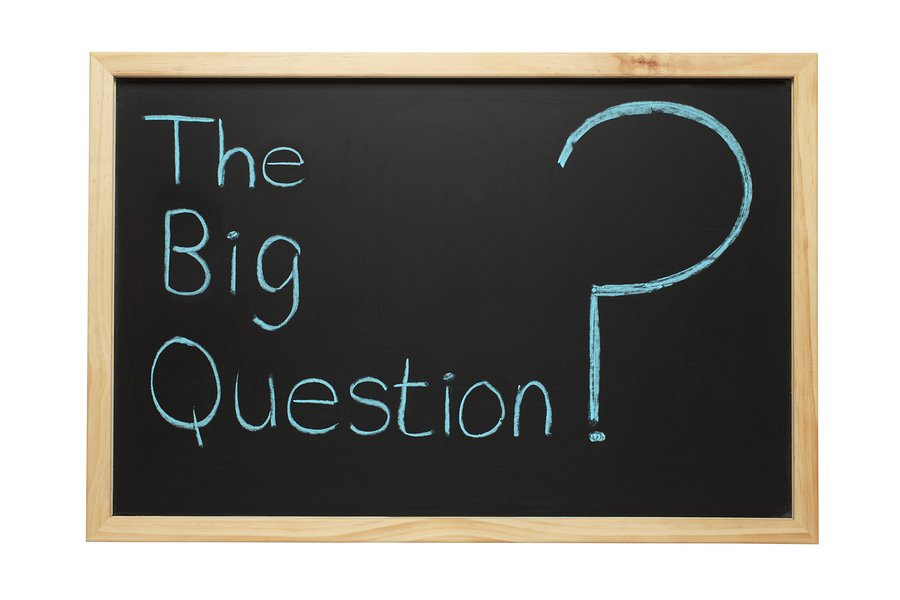This past week Bowker, the company that issues ISBN numbers for published books, released their annual statistics. They broke out the numbers for self-published books and revealed a stunning statistic. (If you want the history and explanation of the ISBN, read my scintillating post on the topic here. Each country issues their own ISBNs; Bowker is the one for the U.S.)
The total number of ISBNs issued in 2017 increased by 28% over 2016 for a total of 1,009,188. Over one million books were issued ISBN numbers!
Realize that many books have two ISBN numbers. One for the paperback and one for the e-book. Some do only one or the other. They did look at that statistic and revealed over 750,000 of the numbers issued were for the print version.
This is not inclusive of all books published, only new ISBNs issued to self-published authors who typically buy one number at a time. Major publishers will buy massive blocks of ISBNs at once and use them as needed (10,000 or more at one time). Thus Bowker can distinguish between the individual, the small press, and the large publisher.
In addition, if you publish with Amazon’s KDP program, you don’t have to have an ISBN. Therefore, many will forego that when publishing their own books. Hundreds of thousands of books are published without an ISBN these days. One only needs the ISBN if they wish to enter the trade marketplace (bookstores) or library space.
That’s a Lot of Books
Gasp! One million self-published books. In one year. One million!? The average public library in the U.S. carries 300,000 titles. Another report indicated holdings of 25 books per 1,000 people in the average library.
In other words, the one million newly published books in 2017 would overwhelm most public libraries.
Drop in the number of traditionally published books (popular trade, university press, textbook, etc.) and the total rises dramatically. (In 2010 Bowker reported 3 million books published in that year.)
The Challenge of Discovery
We’ve written a lot about the value of self-publishing in the right situation, for the right reasons, and done the right way. I truly believe it is a great thing that the option is within financial reach for nearly everyone. Remember I founded a company in 1996 to help people self-publish. (I sold the company, ACW Press, in early 2006.) Therefore I know, firsthand, the value of that option to the author.
The upside is everyone can get published. The downside is that everyone can get published! It creates a massive problem for authors to have their books discovered.
The traditional publishers work hard to figure out this puzzle called “discoverability.” Recently, our client David Rawlings’s first novel was sold to a major publisher. He was able to visit the headquarters of the publisher last month. He came away saying to the effect, “I had no idea that over thirty people were involved in some part of the editing, production, marketing, PR, and sales of my book!” I said, “Imagine if you were self-publishing. You would have to do the work of over 30 people to achieve the same result.”
The Call for Curation
Even those who are successful at self-publishing (and there are many) recognize the work that it takes. They have been able to figure out how to get people to recommend their work to others, the word-of-mouth marketing that curates a book to a network of potential readers.
This is what the traditional publisher strives to do. Select the best of the bunch, and then put the muscle of their organization behind them and hope the market agrees.
We agents must also be in the curation business. I wrote a long post on curation many years ago. Find it here.
What Does This Mean for You?
Simply:
Write the very best book you can.
Build an audience who will support your work (i.e. platform).
Decide whether to self-publish (but only do it the right way) or go the traditional route (get an agent).
Figure out how to launch a book (see this 21 day course for ideas – sign up for the next time it is held).



 Fun Fridays – October 12, 2018
Fun Fridays – October 12, 2018

What I’ve found is that if a book doesn’t pass the curation process a traditional publisher pushes it through, it likely won’t do that well as an indy release. Not always the case, but there’s generally good reasons traditional publishers look for the types of books that they look for (primarily that they’re way easier to SELL to consumers because they’re the books consumers are actively searching for). That being said, I love being indy, and it’s wonderful to own the rights to everything. But I love the business side, a/b testing digital ads, writing promotional copy, writing and pitching press releases, pitching to book review blogs, typesetting and rendering print-ready files, designing book covers (with help), performing and recording my own audiobooks, setting up discount promotions, and watching it all succeed. There’s an enormous amount of “not-writing” duties you have to take care of to pull a decent profit as a self-published author. But even if you’re not self-published, you’ll be more successful if you help your publisher by pitching your books to libraries, book review bloggers, radio stations, etc.
Thus my to-read list is now longer than my lifetime!
I wonder if the larger publishing houses play a more significant role in deciding what is popular with readers than they realize, much the same way the music industry decides for us what is good and popular music, and the apparel industry decides for us what we like in various lines of clothing.
Personal example: I’ll tell you straight up that I rarely listen to mainstream Christian radio. The “popular” music played there is plumbing the depths of tedium, astonishingly non-creative, and nauseatingly same-sounding.
However, through careful scouring of online resources, we find that there is an abundance of highly artistic, creative, God-honoring music available for streaming, and much of it is provided without charge – stuff you will never hear over the public airways.
So, I suspect large, traditional publishing houses have as much to do with deciding for us what will be popular as they do with analyzing what readers would popularize on our own without their influence.
It’s really mostly the other way around. Christian consumers vote with their money. Try selling anything that doesn’t fit the popular structure and you’ll see the truth of it. I’ve worked in both the professional Christian music industry (touring and session drummer), and the publishing industry. It’s true in both arenas, that consumers are the drivers, not the record labels + radio industry/publishers. Yes, there’s lots of creative content out there, outside of the “pop” industry, but basically no one pays for it. People “appreciate it” but the bulk of the consumers just buy what’s popular.
I think it was Snoopy who once said, “The secret of life is to reduce your worries to a minimum.”
Not challenges; not problems; not work. Just worries.
You can’t control the million other titles out there, and you can’t control what society comes to think is important (just remember the song and video ‘Gangnam Style’, and try not to shudder).
You can control quite a bit, though –
1) Write engaging content, and do it well
2) Create an eye-catching cover and title that will make someone scrolling through Amazon stop and look
3) Choose keywords that will bring up your book in searches that real people are likely to make (as opposed to searches an AUTHOR is likely to make)
4) Know your audience, and keeping a steady voice; readers may come out of curiosity, but they’ll stay for consistency
5) Keep the fun in it; if parts of your social media activity feels like sticking your hand into a beehive, it’ll show. Use the platforms you enjoy. You’ll live longer, and more important, you won’t alienate potential readers
6) Remember that Jesus used no paid advertising, appeared on no talk shows, and walked wherever He was going. Message is everything; if it’s worthwhile it’ll get where it needs to be.
Andrew, your reply was amazing!
Thanks for the info, Steve. I had no idea the market was that huge. The last time I walked into a book store, I kept thinking that everyone whose book was there wrote it probably expecting it to be a best seller. the odds are against it, but one can always hope.
Great post and replies ~
So many books. So many decisions to make. 1. for the author, pander to the public for money? 2. for the agent–does it have a chance? 3. for the publishing house– will it sell amidst the sea of books? 4. For the reader– should I buy this one, that one, or that one?
Oh, I forgot. For the editor–is this even worth my time? ‘Send to ghostwriter!’
Steve,
I was at a writer’s conference this weekend, and someone (an AE of a traditional Christian publishing company) said that it’s really about the second book, not so much the first book, because anyone can write a great first book. Then a writer/reader said, “I always want to read the debut novel because they are the best out of all the author’s books.”
I was quite intrigued by the conversation. Sure, it’s possible an author loses steam after creating that first “perfect” book, but really . . . there’s more expectation for the second book? Shouldn’t that effort be the same (in theory, but having learned more about the craft from the first book) as the first book?
What are your thoughts?
In cases of authors where I’ve read everything by them, the later novels are much richer, more complex, less trope-heavy. I’m thinking of Dick Francis and Agatha Christie. Also the fiction of C.S. Lewis.
That said, I have seen a few cases where according to online reviews, by about the 10th book in the series the author apparently just gave up and wrote a preachy, plot-less stinker.
Wow, the sheer number of books put out in one year left my jaw gaping. I had no idea that many self-published and traditionally-published books were released in one year.
I appreciated your words about the things I can do as part of my role on this road to (hopefully) one-day publication and in the hopes of being discovered.
Great information here.